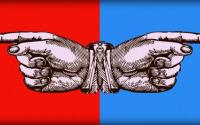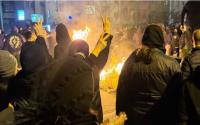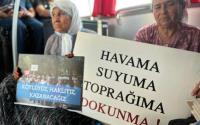21 September 2006Larry Rohter
Thirty years after a Chilean-organized hit squad assassinated former Foreign Minister Orlando Letelier and an American colleague on the streets of Washington, investigators here are drawing closer to implicating this country’s former dictator, Gen. Augusto Pinochet, in the killings.
But they say their efforts are being hindered by a parallel investigation in the United States that has been stalled since President Bush took office and that is withholding potentially important documents.
Mr. Letelier, one of the most visible leaders of the opposition to the Pinochet dictatorship, and Ronni Karpen Moffitt were killed on Sept. 21, 1976, when a bomb planted under his car exploded as they were riding to work.
Even after 9/11, the Letelier assassination remains the most audacious act of state-sponsored terrorism committed on American soil.
“Every day it is clearer that Pinochet ordered my brother’s death,” said Fabiola Letelier, a prominent human rights lawyer here. “But for a proper and complete investigation to take place we need access to the appropriate records and evidence.”
General Pinochet was detained in London in 1998 by prosecutors seeking to bring him to justice for abuses committed during his 17-year rule.
Afterward, the Clinton administration came under new pressure from the Letelier and Moffitt families, and it released more than 24,000 declassified diplomatic and intelligence cables. It also reopened an investigation of the assassination, sending an F.B.I. team to Chile in 2000 to interview more than 40 witnesses.
That mission resulted in a recommendation that the United States indict General Pinochet, but Attorney General Janet Reno decided to leave the decision to her successors in the Bush administration.
The case remains politically delicate in Washington, where previous Republican administrations supported the Pinochet dictatorship as a bulwark against leftist encroachment in Latin America during the cold war.
Though President Bush, whose father was director of central intelligence at the time of the assassination, promised to “direct every resource at our command” to defeating terrorism, the American investigation continues to languish, Ms. Letelier and Chilean officials say.
They and others complain that hundreds of secret documents are being kept out of Chilean hands.
“It’s been six years, three times longer than the original investigation that fingered the hit team, and nothing has happened,” said Peter Kornbluh, a Chile specialist at the National Security Archive, which obtained the release of the original trove of documents. “I’ve filed Freedom of Information Act requests, but the documents that come closest to Pinochet are still being withheld, ostensibly as evidence.”
No one in the Bush administration would comment on the case. William Blier, head of the unit in the office of the United States Attorney in Washington that is in charge of the case, declined a request for information on the status of the investigation. He referred the question to a press spokesman, Channing Phillips, who also would not discuss any aspect of the case.
Other lawyers involved in the case on the victims’ side said the Bush administration’s performance contrasted with promises made after Sept. 11 to put pressure on states that sponsored terrorism.
“It is stunning to me that with all the energy being put into the war on terror,” the Bush administration “has been completely unresponsive to our queries,” said Sam Buffone, a Washington lawyer representing Ms. Moffitt’s husband, Michael Moffitt.
“The most basic lesson of that war is that anyone responsible for an act of domestic terrorism will never get away with it, no matter how long it takes,” Mr. Buffone said. “But that rule seems to have been honored in the breach for Augusto Pinochet.”
General Pinochet, now 90, ailing and discredited here, ruled Chile from Sept. 11, 1973, to March 1990. Since mid-2004, investigations in the United States and in Chile have uncovered an illicit fortune of more than $27 million that he hid abroad.
He is now facing tax fraud and forgery charges, two indictments for human rights violations and several other investigations of murders, kidnappings and disappearances that occurred during his rule.
John Dinges, co-author of “Assassination on Embassy Row” and a professor at Alberto Hurtado University here, said, “The evidence against Pinochet is as strong in the Letelier case as any of the other cases he is facing.”
He noted that the dossier now included damning testimony from central officials. Among them are Gen. Manuel Contreras, the former chief of the National Intelligence Directorate, or DINA, General Pinochet’s secret police, and Michael Townley, an American-born former DINA agent.
Facing intense diplomatic pressure, the Pinochet government handed Mr. Townley over to the United States in 1978. He admitted organizing and carrying out the assassination with Cuban exiles recruited for the task. He served a short prison term and was enrolled in the witness protection program.
General Pinochet refused to extradite other officials of the intelligence directorate who were Chilean citizens. But in 1995 General Contreras was convicted here of the Letelier assassination and sentenced to seven years in prison.
In interviews, including one with The New York Times in November 2004, General Contreras, currently serving a prison term here for the disappearance and torture of political prisoners, said General Pinochet had known and approved of all the actions he took.
But he has not specifically said that General Pinochet, whom American diplomatic cables show as irate about Mr. Letelier’s activities in exile, ordered the killing.
Most recently, Chilean courts agreed to consider a request that General Pinochet be stripped of his immunity in a related case: the murder of Eugenio Berrios, a DINA agent nicknamed Pinochet’s Mad Scientist, whose headless body was found on a beach in Uruguay in 1995.
Mr. Berrios had been spirited into exile there in 1992, in anticipation that he would soon be called to testify in an investigation of the Letelier and other assassinations.
In March, Chile asked that three senior Uruguayan military officers said to be involved in the Berrios killing be extradited here. Uruguayan courts complied, and the men were recently interrogated by a Chilean investigative judge, Alejandro Madrid, whose inquiry into the Berrios case inevitably led him to the Letelier assassination.
“The Chileans have been remarkable, exemplary, in going forward on Pinochet,” E. Lawrence Barcella, the lead prosecutor in the original trial of Mr. Letelier’s assassins in 1980, said in a telephone interview from Washington. “In my view, outliving those you kill is not a defense, and I hope nobody stops trying” to build the case against General Pinochet.
http://www.nytimes.com/2006/09/21/world/americas/21chile.html?pagewanted=1&_r=1&ref=americas






